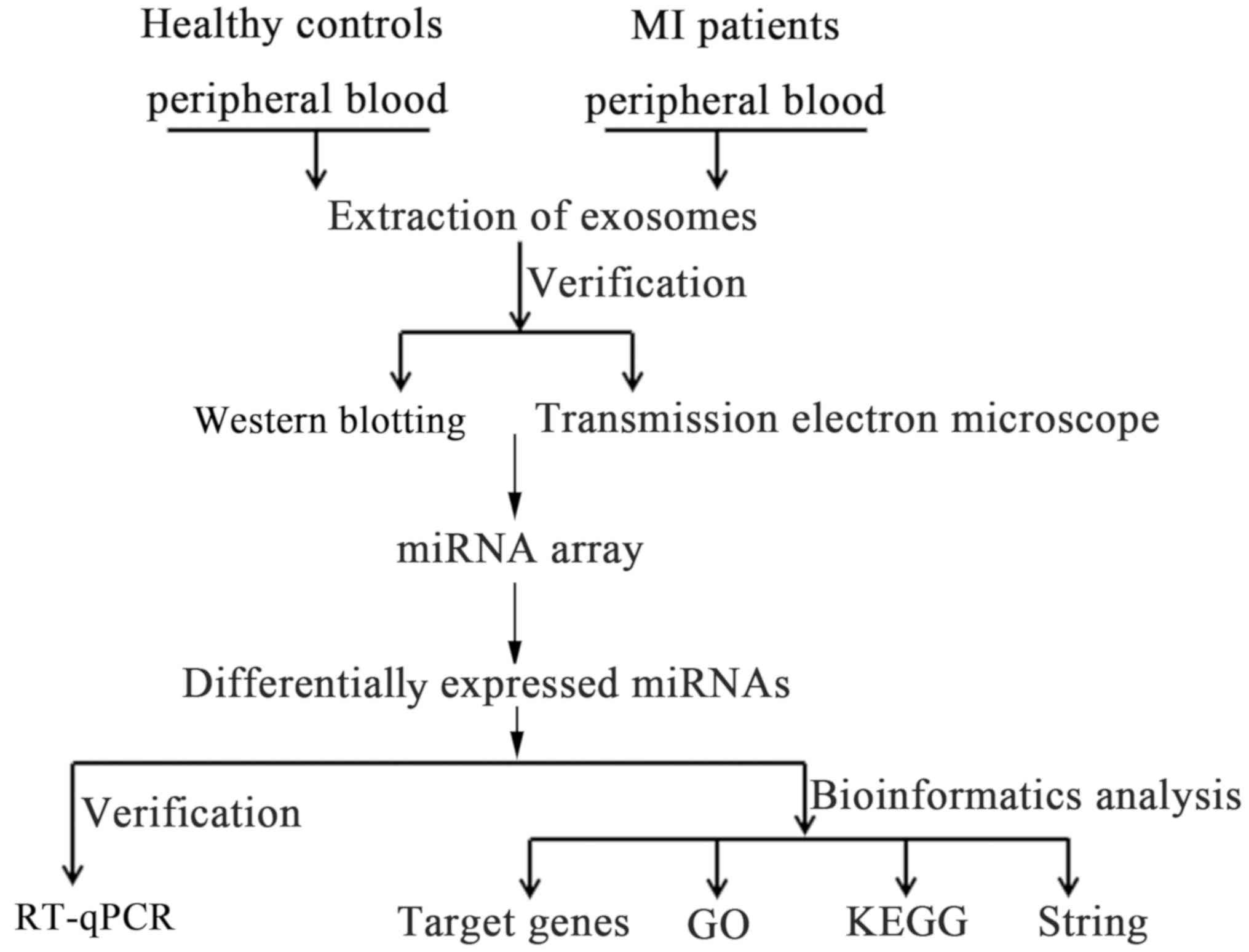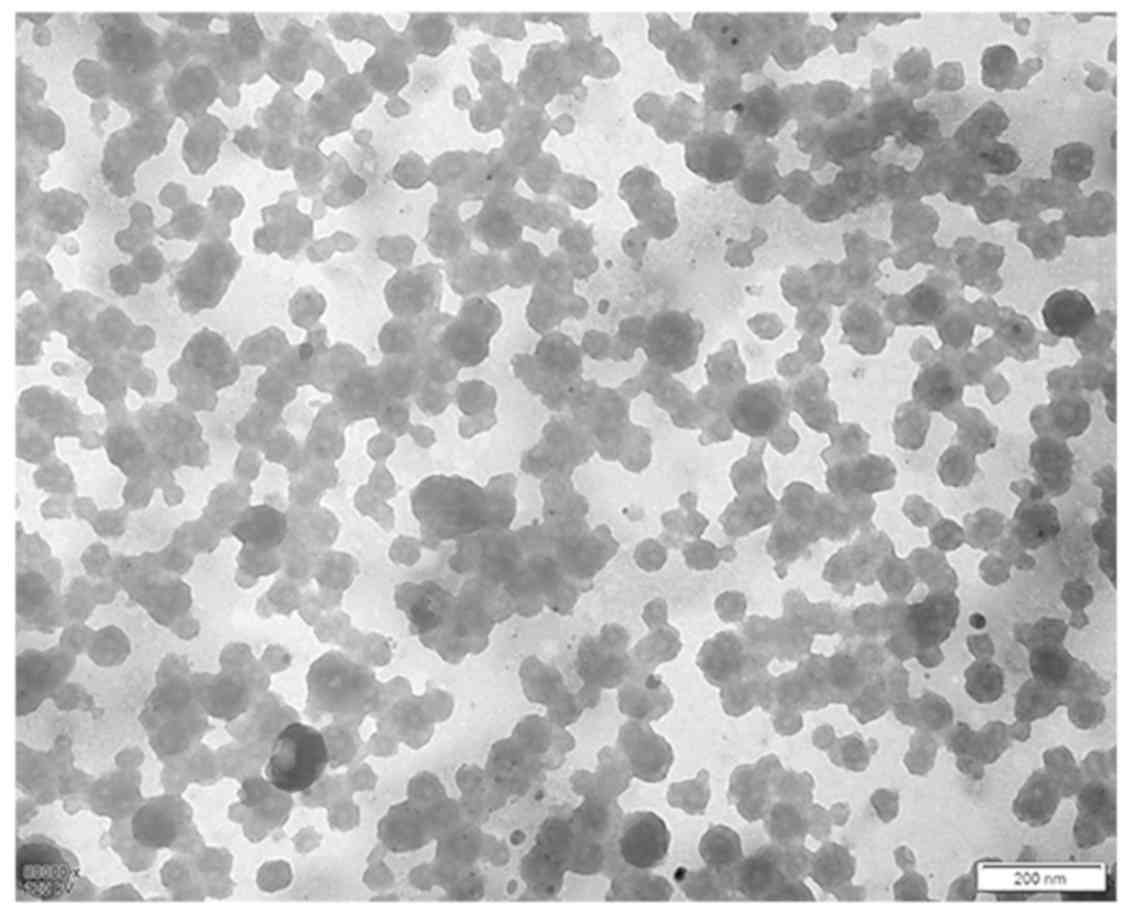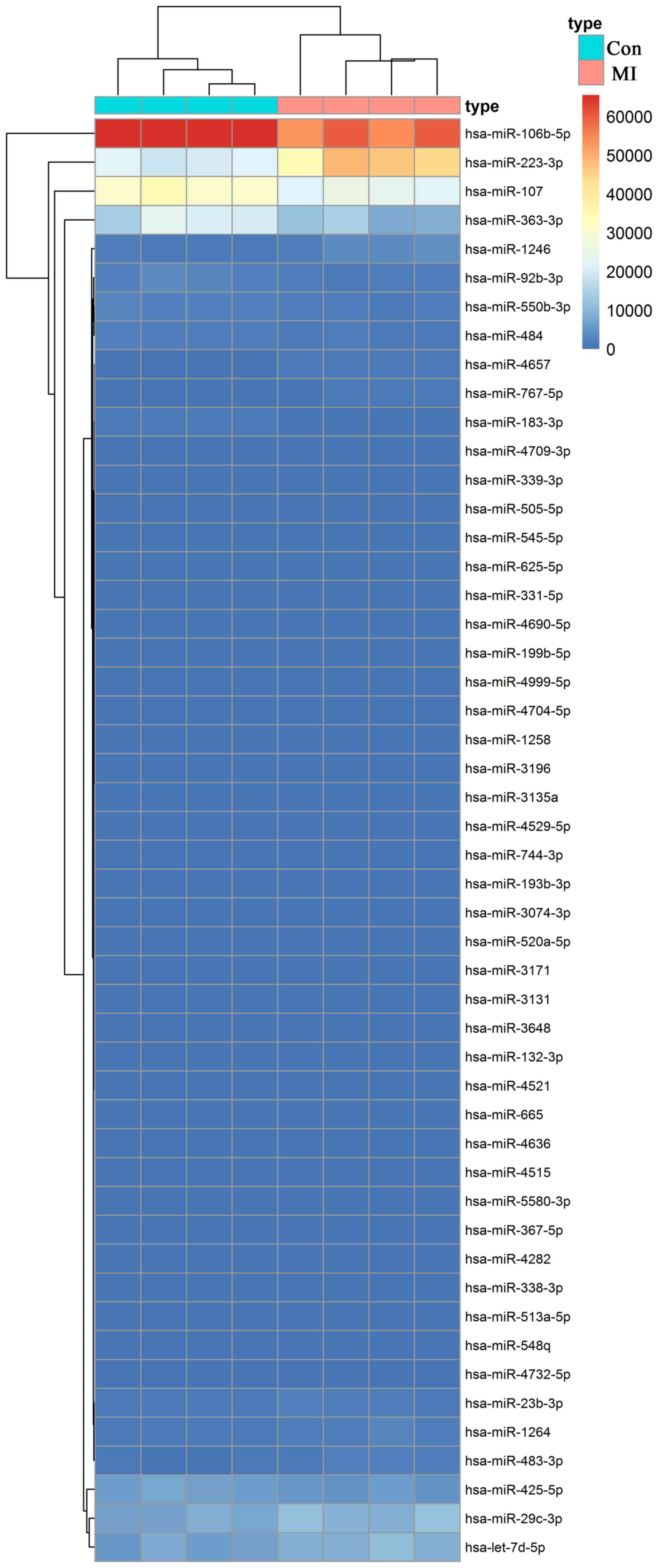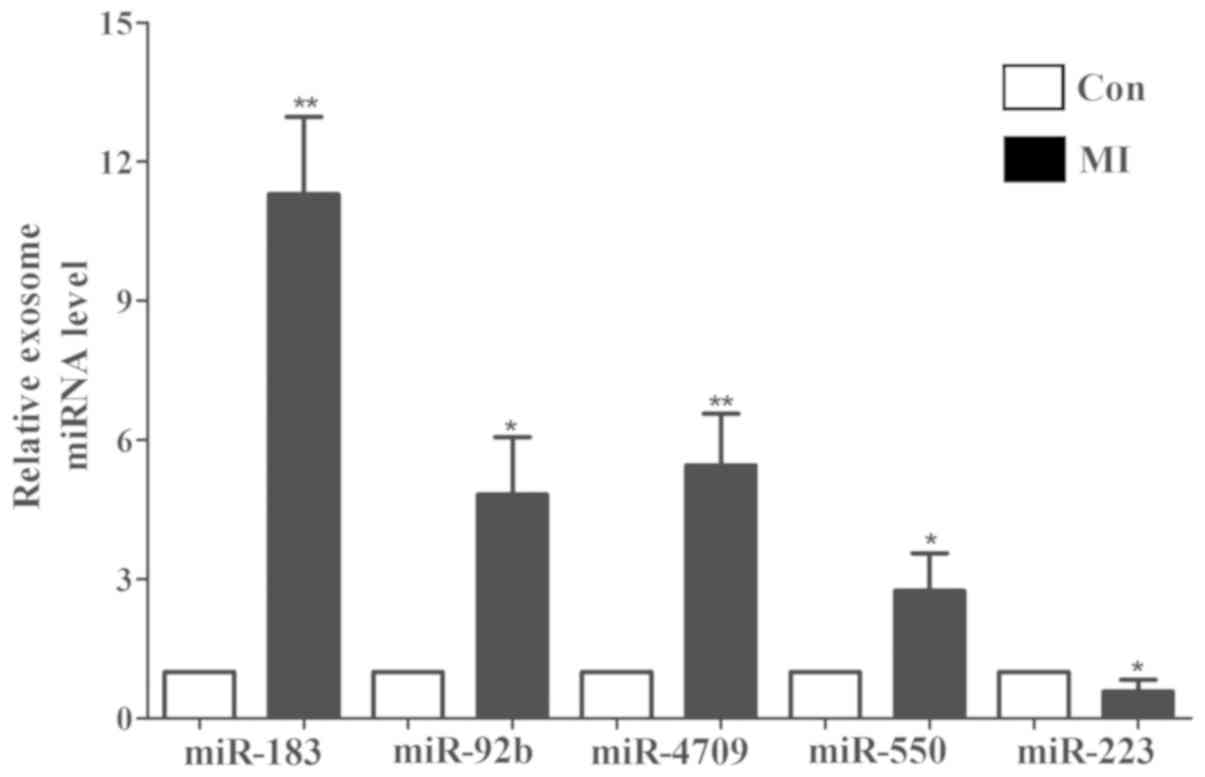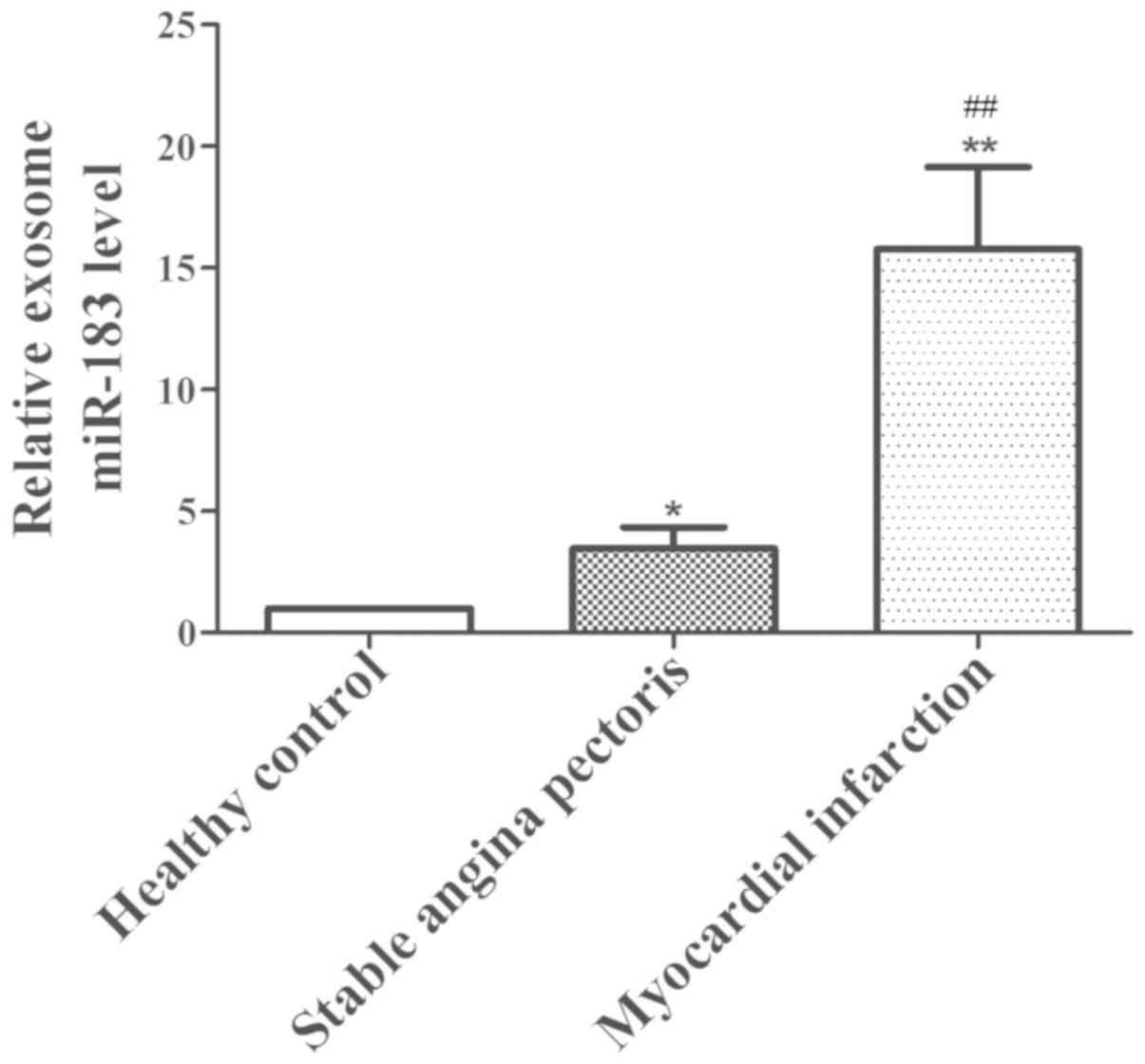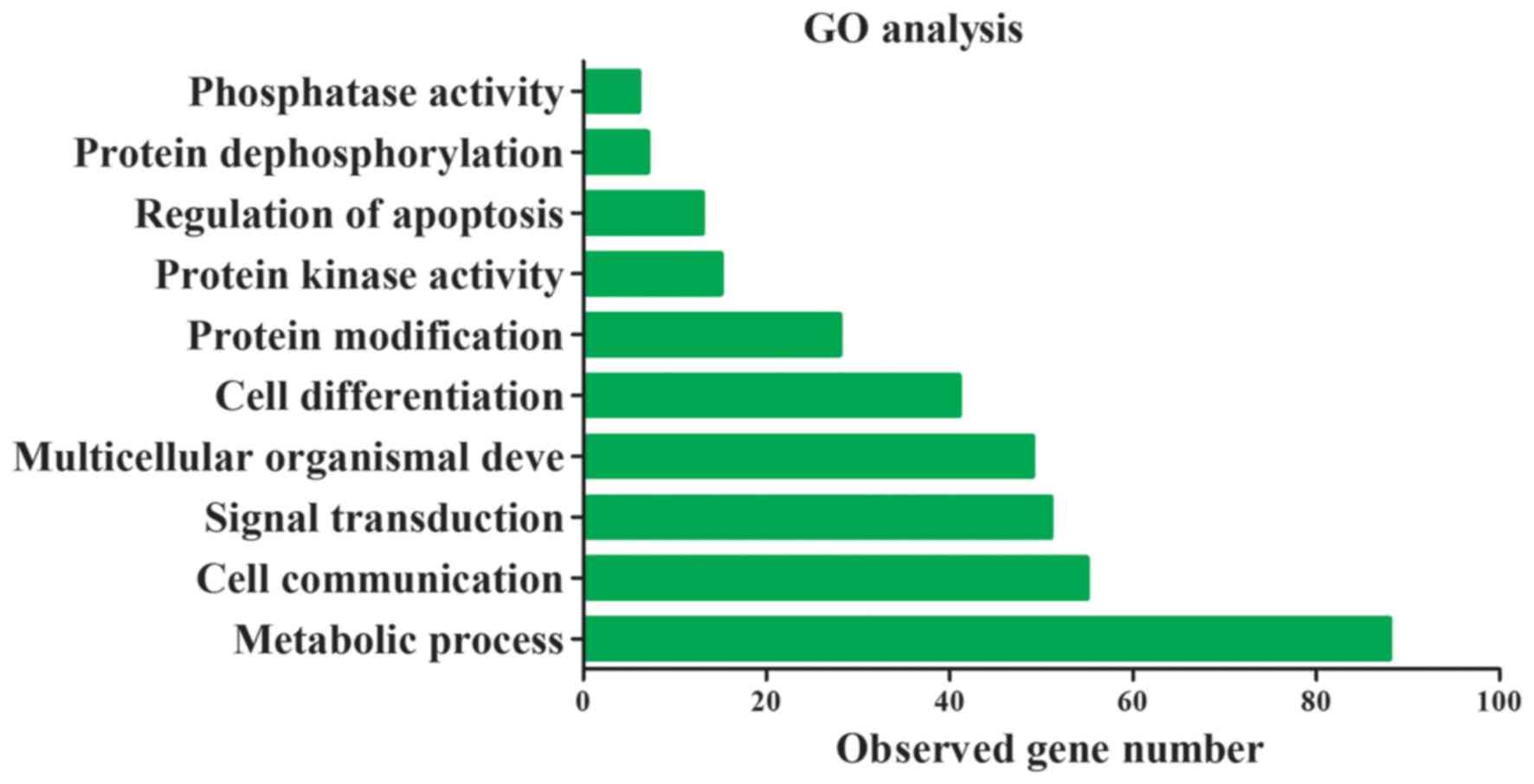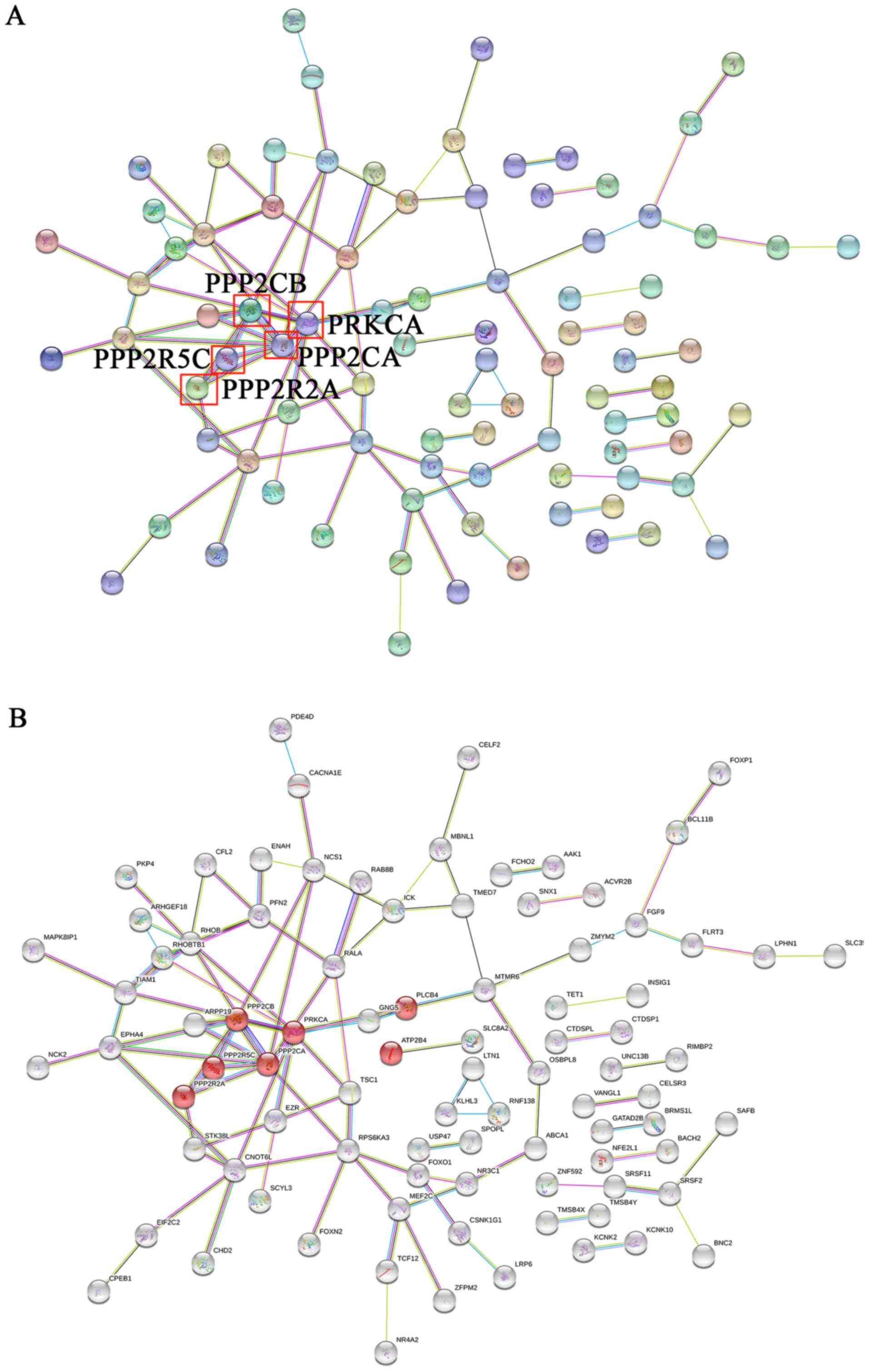|
1
|
Xu W, Yu H, Ma R, Ma L, Liu Q and Shan H,
Wu C, Zhang R, Zhou Y and Shan H: Apelin protects against
myocardial ischemic injury by inhibiting dynamin-related protein 1.
Oncotarget. 8:100034–100044. 2017.PubMed/NCBI
|
|
2
|
Giustino G and Dangas GD:
Ischemia-reperfusion injury and ischemic post-conditioning in acute
myocardial infarction: Lost in translation. Catheter Cardiovasc
Interv. 90:1068–1069. 2017. View Article : Google Scholar : PubMed/NCBI
|
|
3
|
Gao L, Liu Y, Guo S, Yao R, Wu L, Xiao L,
Wang Z, Liu Y and Zhang Y: Circulating long noncoding RNA HOTAIR is
an essential mediator of acute myocardial infarction. Cell Physiol
Biochem. 44:1497–1508. 2017.PubMed/NCBI
|
|
4
|
Willeit P, Welsh P, Evans JDW, Tschiderer
L, Boachie C, Jukema JW, Ford I, Trompet S, Stott DJ, Kearney PM,
et al: High-sensitivity cardiac troponin concentration and risk of
first-ever cardiovascular outcomes in 154,052 participants. J Am
Coll Cardiol. 70:558–568. 2017. View Article : Google Scholar : PubMed/NCBI
|
|
5
|
Shemisa K, Bhatt A, Cheeran D and Neeland
IJ: Novel biomarkers of subclinical cardiac dysfunction in the
general population. Curr Heart Fail Rep. 14:301–310. 2017.
View Article : Google Scholar : PubMed/NCBI
|
|
6
|
Paiva S and Agbulut O: MiRroring the
multiple potentials of MicroRNAs in acute myocardial infarction.
Front Cardiovasc Med. 4:732017. View Article : Google Scholar : PubMed/NCBI
|
|
7
|
Zhou J, Li XL, Chen ZR and Chng WJ:
Tumor-derived exosomes in colorectal cancer progression and their
clinical applications. Oncotarget. 8:100781–100790. 2017.PubMed/NCBI
|
|
8
|
Alipoor SD, Mortaz E, Garssen J,
Movassaghi M, Mirsaeidi M and Adcock IM: Exosomes and exosomal
miRNA in respiratory diseases. Mediators Inflamm. 2016:56284042016.
View Article : Google Scholar : PubMed/NCBI
|
|
9
|
Anderson JL, Adams CD, Antman EM, Bridges
CR, Califf RM, Casey DE Jr, Chavey WE II, Fesmire FM, Hochman JS,
Levin TN, et al: 2012 ACCF/AHA focused update incorporated into the
ACCF/AHA 2007 guidelines for the management of patients with
unstable angina/non-ST-elevation myocardial infarction: A report of
the American College of Cardiology Foundation/American Heart
Association Task Force on Practice Guidelines. J Am Coll Cardiol.
61:e179–e347. 2013. View Article : Google Scholar : PubMed/NCBI
|
|
10
|
O' Flynn N, Timmis A, Henderson R, Rajesh
S and Fenu E; Guideline Development Group, : Management of stable
angina: Summary of NICE guidance. BMJ. 343:d41472011. View Article : Google Scholar : PubMed/NCBI
|
|
11
|
Au Yeung CL, Co NN, Tsuruga T, Yeung TL,
Kwan SY, Leung CS, Li Y, Lu ES, Kwan K, Wong KK, et al: Exosomal
transfer of stroma-derived miR21 confers paclitaxel resistance in
ovarian cancer cells through targeting APAF1. Nat Commun.
7:111502016. View Article : Google Scholar : PubMed/NCBI
|
|
12
|
Wang S, Ruan QF, Xie WG, Chen L, Jiang MJ,
Ruan JJ and Ye ZQ: Differential expression of microRNAs in serum of
severe burn patients and analysis of the signaling pathway at early
stage. Zhonghua Shao Shang Za Zhi. 33:639–643. 2017.(In Chinese).
PubMed/NCBI
|
|
13
|
Livak KJ and Schmittgen TD: Analysis of
relative gene expression data using real-time quantitative PCR and
the 2(-Delta Delta C(T)) method. Methods. 25:402–408. 2001.
View Article : Google Scholar : PubMed/NCBI
|
|
14
|
Verjans R, Peters T, Beaumont FJ, van
Leeuwen R, van Herwaarden T, Verhesen W, Munts C, Bijnen M, Henkens
M, Diez J, et al: MicroRNA-221/222 family counteracts myocardial
fibrosis in pressure overload-induced heart failure. Hypertension.
71:280–288. 2018. View Article : Google Scholar : PubMed/NCBI
|
|
15
|
Maarman GJ, Mendham AE, Lamont K and
George C: Review of a causal role of fructose-containing sugars in
myocardial susceptibility to ischemia/reperfusion injury. Nutr Res.
42:11–19. 2017. View Article : Google Scholar : PubMed/NCBI
|
|
16
|
Tran HV, Lessard D, Tisminetzky MS,
Yarzebski J, Granillo EA, Gore JM and Goldberg R: Trends in length
of hospital stay and the impact on prognosis of early discharge
after a first uncomplicated acute myocardial infarction. Am J
Cardiol. 121:397–402. 2018. View Article : Google Scholar : PubMed/NCBI
|
|
17
|
Wang ZH, Sun XY, Li CL, Sun YM, Li J, Wang
LF and Li ZQ: miRNA-21 expression in the serum of elderly patients
with acute myocardial infarction. Med Sci Monit. 23:5728–5734.
2017. View Article : Google Scholar : PubMed/NCBI
|
|
18
|
Wang F, Long G, Zhao C, Li H, Chaugai S,
Wang Y, Chen C and Wang DW: Atherosclerosis-related circulating
miRNAs as novel and sensitive predictors for acute myocardial
infarction. PLoS One. 9:e1057342014. View Article : Google Scholar : PubMed/NCBI
|
|
19
|
Pan J, Ding M, Xu K, Yang C and Mao LJ:
Exosomes in diagnosis and therapy of prostate cancer. Oncotarget.
8:97693–97700. 2017.PubMed/NCBI
|
|
20
|
Pillay P, Moodley K, Moodley J and Mackraj
I: Placenta-derived exosomes: Potential biomarkers of preeclampsia.
Int J Nanomedicine. 12:8009–8023. 2017. View Article : Google Scholar : PubMed/NCBI
|
|
21
|
Zhang G and Yang P: A novel cell-cell
communication mechanism in the nervous system: Exosomes. J Neurosci
Res. 96:45–52. 2018. View Article : Google Scholar : PubMed/NCBI
|
|
22
|
Lin J, Li J, Huang B, Liu J, Chen X, Chen
XM, Xu YM, Huang LF and Wang XZ: Exosomes: Novel biomarkers for
clinical diagnosis. ScientificWorldJournal. 2015:6570862015.
View Article : Google Scholar : PubMed/NCBI
|
|
23
|
Jia S, Zhang R, Li Z and Li J: Clinical
and biological significance of circulating tumor cells, circulating
tumor DNA, and exosomes as biomarkers in colorectal cancer.
Oncotarget. 8:55632–55645. 2017. View Article : Google Scholar : PubMed/NCBI
|
|
24
|
Garcia-Contreras M, Shah SH, Tamayo A,
Robbins PD, Golberg RB, Mendez AJ and Ricordi C: Plasma-derived
exosome characterization reveals a distinct microRNA signature in
long duration Type 1 diabetes. Sci Rep. 7:59982017. View Article : Google Scholar : PubMed/NCBI
|
|
25
|
Sluijter JPG, Davidson SM, Boulanger CM,
Buzás EI, de Kleijn DPV, Engel FB, Giricz Z, Hausenloy DJ, Kishore
R, Lecour S, et al: Extracellular vesicles in diagnostics and
therapy of the ischaemic heart: Position paper from the working
group on cellular biology of the heart of the European society of
cardiology. Cardiovasc Res. 114:19–34. 2018. View Article : Google Scholar : PubMed/NCBI
|
|
26
|
Li DB, Liu JL, Wang W, Li RY, Yu DJ, Lan
XY and Li JP: Plasma exosomal miR-422a and miR-125b-2-3p serve as
biomarkers for ischemic stroke. Curr Neurovasc Res. 14:330–337.
2017. View Article : Google Scholar : PubMed/NCBI
|
|
27
|
Chistiakov DA, Orekhov AN and Bobryshev
YV: Cardiac extracellular vesicles in normal and infarcted heart.
Int J Mol Sci. 17(pii): E632016. View Article : Google Scholar : PubMed/NCBI
|
|
28
|
Macedo T, Silva-Oliveira RJ, Silva VAO,
Vidal DO, Evangelista AF and Marques MMC: Overexpression of mir-183
and mir-494 promotes proliferation and migration in human breast
cancer cell lines. Oncol Lett. 14:1054–1060. 2017. View Article : Google Scholar : PubMed/NCBI
|
|
29
|
Lima CR, Gomes CC and Santos MF: Role of
microRNAs in endocrine cancer metastasis. Mol Cell Endocrinol.
456:62–75. 2017. View Article : Google Scholar : PubMed/NCBI
|
|
30
|
Anwar SL, Krech T, Hasemeier B, Schipper
E, Schweitzer N, Vogel A, Kreipe H, Buurman R, Skawran B and
Lehmann U: hsa-mir-183 is frequently methylated and related to poor
survival in human hepatocellular carcinoma. World J Gastroenterol.
23:1568–1575. 2017. View Article : Google Scholar : PubMed/NCBI
|
|
31
|
Yao Y, Lu Q, Hu Z, Yu Y, Chen Q and Wang
QK: A non-canonical pathway regulates ER stress signaling and
blocks ER stress-induced apoptosis and heart failure. Nat Commun.
8:1332017. View Article : Google Scholar : PubMed/NCBI
|
|
32
|
Qipshidze Kelm N, Piell KM, Wang E and
Cole MP: MicroRNAs as predictive biomarkers for myocardial injury
in aged mice following myocardial infarction. J Cell Physiol.
233:5214–5221. 2018. View Article : Google Scholar : PubMed/NCBI
|















